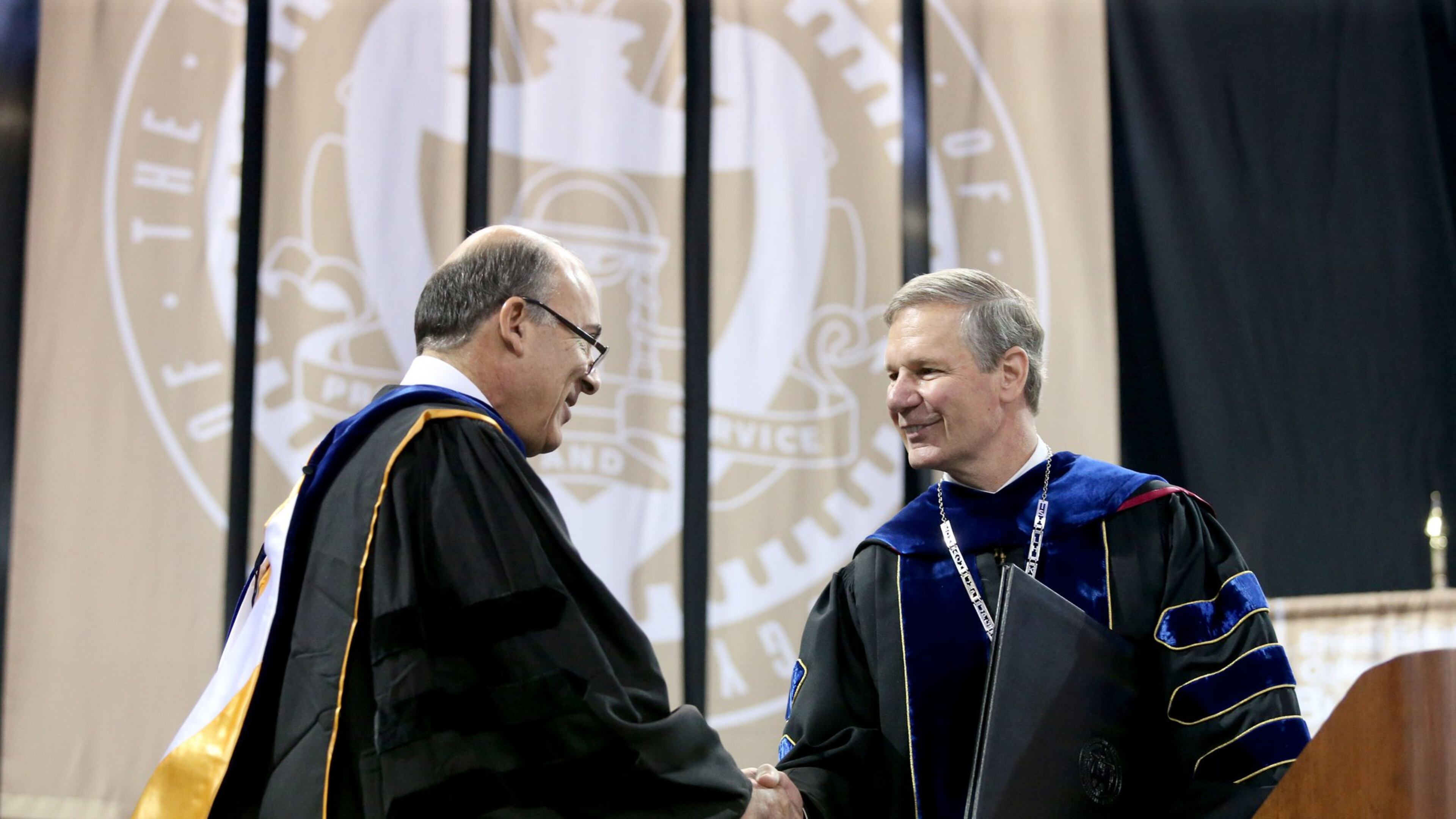Georgia Tech erred in awarding Coke no-bid contract, university says

The recent revelations that some former top officials of Georgia Tech violated its ethics guidelines have exposed another problem at the university: It’s had a no-bid agreement for some services with Coca-Cola at least a quarter-century.
Georgia Tech, in written responses to questions from Channel 2 Action News and The Atlanta Journal-Constitution, said Monday afternoon that there should have been a bid process.
“The contracts signed in 1993, 2000 and 2008 were, at the time, viewed as an extension of previous agreements. They should have been competitively bid,” Tech said via email.
Georgia Tech’s attorneys are now working on the matter, said spokesman John Toon.
Some Georgia Tech officials discussed their concerns about the agreement to provide Coca-Cola products on campus in late July, less than a week after the reports about the ethics violations went public, according to emails obtained by Channel 2 Action News through the Georgia Open Records Act. During the past decade, Georgia Tech’s Foundation, which raises money for the university to fund faculty salaries, grants and student scholarships, received between $275,000 and $336,424 a year from the agreement.
JulieAnne Williamson, who became Georgia Tech’s interim director of campus services in late July, emailed legal affairs and risk management director Patrick McKenna that a “couple of employees have raised questions about our contract and the process we go through to award the contract. This came as a result of the recent communications and reports released, as they want to be sure all is well.”
McKenna echoed the concerns, saying there are “issues with the sponsorship agreement.”
“I understand that some time ago a determination was made that the funds provided under the agreement should be sent to the Georgia Tech Foundation,” wrote McKenna, who retired at the end of August. “As we have seen in recent audits, that is not permissible.”
The 2008 contract by then-Georgia Tech President Gary Schuster and two Coca-Cola executives outlined how much money the beverage company would give the university for various student funds.
“The Coca-Cola Company and The Atlanta Coca-Cola Bottling Company will make all of the above-referenced Annual Support Payments if and long as Georgia Tech agrees and continues to ensure that ‘Beverages’ of The Coca-Cola Company are the only Beverages sold, serviced, promoted or sampled,” the contract said. It began in November 2008 and was scheduled to end in December 2021.
Georgia Tech and Coca-Cola are neighbors, literally, and have a long-standing partnership. The beverage company’s headquarters are on North Avenue in Midtown Atlanta, across the street from the campus. Coca-Cola has supported scholarships for first-generation students, it opened an innovation center on campus a few years ago, and the company’s executives have received honorary degrees from Tech over the years.
Coca-Cola said in a statement it has a long and proud history of supporting colleges through proper channels and wants to continue to do so with Georgia Tech.
“We follow the bid process established by each of the universities we serve, and we look forward to working with Georgia Tech in this process,” the company said.
Still, that relationship should not mean Georgia Tech, a public institution, should award the company no-bid agreements, said William Perry, founder of Georgia Ethics Watchdogs.
“Georgia Tech is a government organization,” Perry said. “Government contracts should always have competitive bids whenever you have an opportunity so (Georgia Tech) gets the best possible product at the best price.”
A state report and internal audit released in late July found problems such as a Georgia Tech official receiving money to serve on the board of a vendor that was being paid to perform services for the university. One official was fired and three others resigned. The reports were done in response to whistleblower complaints.
Georgia Tech President G.P. “Bud” Peterson has made several changes he believes will create a stronger ethics culture at the university. He’s scheduled to give an update report to the state’s Board of Regents in November.
Georgia Tech, which has the second-slowest turnaround time among University System of Georgia schools in completing internal ethics complaints, has also said it would work faster on claims from whistleblowers.



